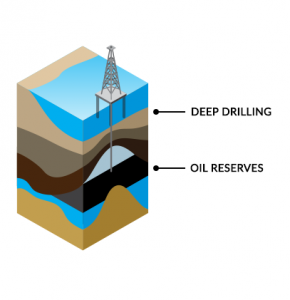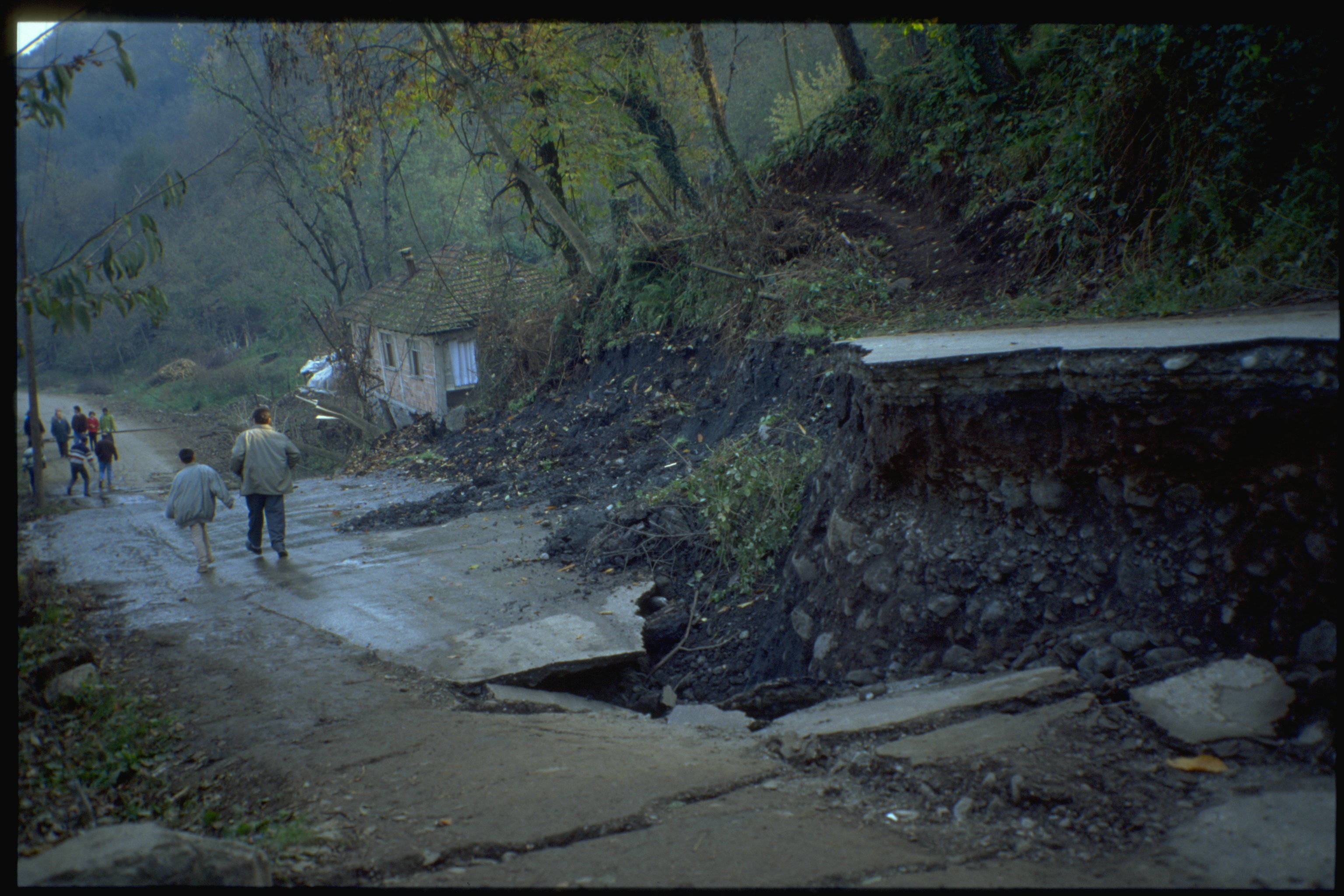All Categories
Featured
Table of Contents
- – What Would I Be Doing As A Geophysicist? in B...
- – Geophysical Surveys: Definition & Methods in...
- – Geophysical Surveying - Methods And Applicat...
- – What Does A Geophysicist Do: Duties And Res...
- – Geophysicists in Coolbellup Western Austral...
- – Services Geophysical in North Fremantle WA...
- – Geophysical Survey: Plotting Buried Traces...
- – Geophysical Methods in Ascot Oz 2020
- – Geoscientist - College Of Science in Parkw...
- – What Would I Be Doing As A Geophysicist? i...
What Would I Be Doing As A Geophysicist? in Bateman Aus 2020
What is the task description of a Geophysicist? What are the duties and responsibilities of a Geophysicist? What does a Geophysicist do? A geophysicist studies physical aspects of the earth and uses complicated equipment to collect data on earthquakes and seismic waves, which move through and around the earth. The very best industries for geophysicists are the mining and oil markets, as they play a substantial part in the acquisition of natural deposits.
This Geophysicist task description example consists of the list of most crucial Geophysicist duties and responsibilities as revealed below. It can be modified to fit the specific Geophysicist profile you're attempting to fill as a recruiter or task applicant.
Profession chances differ commonly throughout a series of fields consisting of geophysical data, climate modelling, engineering geology, hydrology, mining, ecological consulting, natural resources exploration, farming, and others. There are lots of career paths that can integrate your academic backgrounds, abilities, and experience with your various interests. Go through the task titles below for concepts.
Geophysical Surveys: Definition & Methods in Bull Creek Australia 2020
Check out the National Occupational Category site to research study standard requirements and duties of tasks in your field.
Geophysics plays in crucial role in numerous elements of civil engineering, petroleum engineering, mechanical engineering, and mining engineering, along with mathematics, physics, geology, chemistry, hydrology, and computer technology. Therefore, students in other majors might think about a small in geophysical engineering. The core courses required for a small are: GPGN229, Mathematical Geophysics (3.
0 credits) GPGN329, Physics of the Earth II (3. 0 credits) Students might satisfy the staying 5 hours with a combination of other geophysics courses, as well as courses in geology, mathematics, or computer science, depending on the trainee's major.
Geophysical Surveying - Methods And Applications in Fremantle Aus 2023

The salary level of geophysicists can differ depending upon factors such as their level of education, their level of experience, where they work, and lots of others. According to the 2018 Alberta Wage and Income Survey, Albertans operating in the occupational group make an average income of per year. According to Work, BC (the Province of British Columbia), the yearly provincial mean wage of B.C.

Geophysicists can work both indoors, in an office or laboratory environment, or outdoors while carrying out fieldwork. Fieldwork can involve being exposed to a range of weather, and possibly dangerous scenarios, depending upon their area of specialization of the geophysicist. Some geophysicists might also spend extended periods of time operating in little teams in remote locations.
When performing fieldwork, the working hours of geophysicists can be long and include nights, weekends and holidays. To become a proficient geophysicist, you need to posses a certain set of skills and characteristic. These skills and characteristics will permit you to efficiently carry out the duties of your job, as well as keep a favorable mindset towards your work.
What Does A Geophysicist Do: Duties And Responsibilities in Mount Hawthorn Western Australia 2021
Colleges and universities Federal, provincial/state government departments Oil, gas and mining companies Non-profit organizations Geological and geophysical consulting companies Public and private research study organizations Our job board listed below has "Geophysicist" postings in Canada, the United States, the UK and Australia, when readily available:.
Our information shows that the greatest spend for a Geophysicist is $165k/ year Our information indicates that the most affordable spend for a Geophysicist is $55k/ year Increasing your pay as a Geophysicist is possible in various methods. Change of employer: Consider a profession relocation to a brand-new employer that wants to pay higher for your abilities.
Handling Experience: If you are a Geophysicist that manages more junior Geophysicists, this experience can increase the likelihood to earn more.
Geophysicists in Coolbellup Western Australia 2020
Physics of the Earth and its vicinity Age of the sea floor. Much of the dating info comes from magnetic abnormalities.
Geophysics is applied to societal needs, such as mineral resources, mitigation of natural dangers and ecological security. In expedition geophysics, geophysical study data are utilized to analyze potential petroleum tanks and mineral deposits, find groundwater, find historical antiques, figure out the density of glaciers and soils, and evaluate sites for environmental removal. , which includes other planetary bodies.
The gravitational pull of the Moon and Sun triggers 2 high tides and two low tides every lunar day, or every 24 hours and 50 minutes. There is a space of 12 hours and 25 minutes between every high tide and in between every low tide. Gravitational forces make rocks push down on deeper rocks, increasing their density as the depth increases.
Services Geophysical in North Fremantle WA 2021
The geoid would be the global mean sea level if the oceans were in stability and could be extended through the continents (such as with very narrow canals).
The primary sources of heat are the primitive heat and radioactivity, although there are likewise contributions from stage transitions. Heat is primarily carried to the surface by thermal convection, although there are 2 thermal boundary layers the coremantle border and the lithosphere in which heat is carried by conduction. Some heat is brought up from the bottom of the mantle by mantle plumes. 2 1013 W, and it is a possible source of geothermal energy. Illustration of the deformations of a block by body waves and surface area waves (see seismic wave). Seismic waves are vibrations that take a trip through the Earth's interior or along its surface. The entire Earth can likewise oscillate in types that are called normal modes or complimentary oscillations of the Earth. If the waves come from a localized source such as an earthquake or explosion, measurements at more than one area can be used to find the source. The places of earthquakes offer information on plate tectonics and mantle convection.
Understanding their mechanisms, which depend on the kind of earthquake (e. g., intraplate or deep focus), can cause much better estimates of earthquake danger and improvements in earthquake engineering. We primarily observe electrical power during thunderstorms, there is always a down electric field near the surface area that averages 120 volts per meter. A current of about 1800 amperes flows in the worldwide circuit. It flows downward from the ionosphere over many of the Earth and back upwards through thunderstorms. The flow appears by lightning listed below the clouds and sprites above. A variety of electrical methods are utilized in geophysical study. Some measure spontaneous potential, a capacity that emerges in the ground because of manufactured or natural disturbances.
Geophysical Survey: Plotting Buried Traces Of Human Activity in Riverton Aus 2021
In the extremely conductive liquid iron of the external core, magnetic fields are produced by electrical currents through electro-magnetic induction.
In the core, they probably have little observable impact on the Earth's electromagnetic field, but slower waves such as magnetic Rossby waves may be one source of geomagnetic secular variation. Electro-magnetic approaches that are utilized for geophysical study include transient electromagnetics, magnetotellurics, surface area nuclear magnetic resonance and electro-magnetic seabed logging. They are the basis of magnetostratigraphy, which associates magnetic reversals with other stratigraphies to construct geologic time scales. In addition, the magnetization in rocks can be utilized to measure the movement of continents. Radioactive decay represent about 80% of the Earth's internal heat, powering the geodynamo and plate tectonics.
Geophysical Methods in Ascot Oz 2020
Radioactive components are used for radiometric dating, the main approach for establishing an outright time scale in geochronology. Unstable isotopes decay at predictable rates, and the decay rates of different isotopes cover numerous orders of magnitude, so radioactive decay can be used to precisely date both recent occasions and occasions in previous geologic ages.
Fluid motions happen in the magnetosphere, environment, ocean, mantle and core. Even the mantle, though it has a huge viscosity, flows like a fluid over long period of time intervals. This circulation is reflected in phenomena such as isostasy, post-glacial rebound and mantle plumes. The mantle flow drives plate tectonics and the flow in the Earth's core drives the geodynamo.
Water is a very complicated substance and its special homes are essential for life.
Geoscientist - College Of Science in Parkwood WA 2020
The lots of kinds of rainfall involve a complicated mixture of processes such as coalescence, supercooling and supersaturation. Some precipitated water ends up being groundwater, and groundwater circulation consists of phenomena such as percolation, while the conductivity of water makes electrical and electro-magnetic techniques useful for tracking groundwater circulation. Physical homes of water such as salinity have a big impact on its motion in the oceans. The Earth is roughly round, but it bulges towards the Equator, so it is roughly in the shape of an ellipsoid (see Earth ellipsoid). This bulge is due to its rotation and is nearly constant with an Earth in hydrostatic balance. The in-depth shape of the Earth, however, is also affected by the distribution of continents and ocean basins, and to some extent by the dynamics of the plates.
(5. 515) is far higher than the common specific gravity of rocks at the surface area (2.
33 M R2, compared to 0. 4 M R2 for a sphere of consistent density). Some of the density increase is compression under the enormous pressures inside the Earth.
What Would I Be Doing As A Geophysicist? in Shenton Park Aus 2022
The conclusion is that pressure alone can not account for the boost in density. Instead, we understand that the Earth's core is composed of an alloy of iron and other minerals.
, nevertheless, is strong since of the huge pressure.
Table of Contents
- – What Would I Be Doing As A Geophysicist? in B...
- – Geophysical Surveys: Definition & Methods in...
- – Geophysical Surveying - Methods And Applicat...
- – What Does A Geophysicist Do: Duties And Res...
- – Geophysicists in Coolbellup Western Austral...
- – Services Geophysical in North Fremantle WA...
- – Geophysical Survey: Plotting Buried Traces...
- – Geophysical Methods in Ascot Oz 2020
- – Geoscientist - College Of Science in Parkw...
- – What Would I Be Doing As A Geophysicist? i...
Latest Posts
Geophysical Survey In Archaeology in Samson WA 2023
Geology Careers: Degree Requirements, Cost & Salary in Subiaco Western Australia 2022
Geophysical Surveys: Definition & Methods in Armadale Western Australia 2022
More
Latest Posts
Geophysical Survey In Archaeology in Samson WA 2023
Geology Careers: Degree Requirements, Cost & Salary in Subiaco Western Australia 2022
Geophysical Surveys: Definition & Methods in Armadale Western Australia 2022